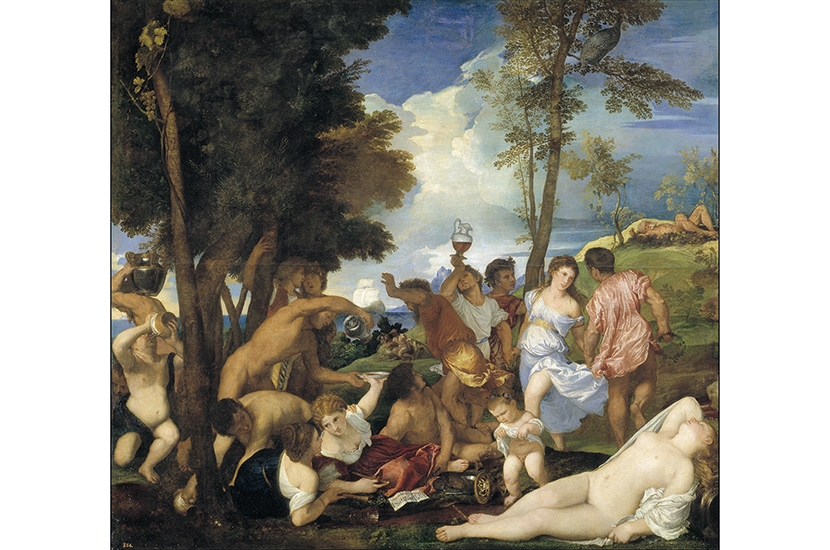It was once a favourite theory of optimistic drunkards that a suitably ‘moderate’ level of alcohol consumption provided covert health benefits. The mechanism was always a little obscure. But it was a fairly sure thing that reds — or was it all booze? — by virtue of some enzyme or vitamin or whatever, and judiciously drunk in something between homeopathic and industrial quantities, protected against heart attack — or was it ischaemic stroke… or memory loss? This, at any rate, was the glass-half-full defence of moderate drinking.
Then a paper published in the Lancet in 2018 pulled the rug out from underneath the moderate drinker (not something, needless to say, that he finds terribly helpful). The much publicised study concluded that there was actually ‘no safe level of alcohol consumption’; previous, more optimistic, studies were ‘inaccurate’; tax, regulation and ‘restrictions on the physical availability of alcohol’ should be employed to discourage drinking. It was sobering news: enough, upon reflection, to make you want to seriously cut back on reading the Lancet.
Edward Slingerland’s Drunk is self-consciously ‘haunted’ by that Lancet study — ‘the terrible document that concluded definitively that the only safe level of alcohol consumption was zero’. Slingerland aims to tell a vindicatory story about intoxication, its adaptive value for societies and individuals, and its continued indispensability to contemporary life.
Instead of alcohol you could always try sleep deprivation, self-flagellation or extended meditation in painful poses
There is a ‘genuine evolutionary puzzle’ about alcohol. If alcohol intoxication really were the cause of individual ill health and wider social dysfunction, unchecked by any broader benefit, we should expect it to have been eliminated by natural and cultural selection: ‘Evolution is not stupid, and works much faster than most people realise.’ Moreover, genetic ‘solutions’ to the alleged problem of alcohol consumption already exist in the form of heritable intolerance, so-called Asian Flushing Syndrome; cultural ‘solutions’ exist in the form of prohibition. If genes giving rise to intolerance were adaptively advantageous, or prohibition ‘a cultural evolutionary killer app’, we would expect them to be widespread. But they aren’t. ‘As scientists,’ Slingerland writes, ‘we can only conclude that some other adaptive forces must be at work.’
Few cultures have failed to give a role, often a highly ritualised and sacred one, to practices of communal intoxication. According to one theory, Neolithic man was driven to settle the first human societies by his urge to brew beer, the consumption of which then made the meanness and claustrophobia of settled life tolerable. The love of alcohol — this thirst that has nothing to do with thirstiness — is the malady for which it is itself the cure. As Homer Simpson so perceptively put it, alcohol is ‘the cause of, and solution to, all of life’s problems’.
We have not outgrown the need to get hammered in each other’s company, Slingerland argues. The function of intoxication is to disable a human being’s dominating and sophisticated ‘pre-frontal cortex’ in a temporary, controlled and pleasurable way. When inebriated, the bonds of social commitment are strengthened. People become more childlike, creative, trusting and emotionally open. Alcohol is the ‘cultural technology’ that enables ‘humans to escape the limits imposed by our ape nature and create social insect-like levels of cooperation’.
Having argued thus — and perhaps in homage to the drunkard’s party trick, the ominous conversational gear-shift — Slingerland begins to share some rather miscellaneous ‘serious concerns’, and then to offer us some unsolicited ‘advice’. First, there are worries about social justice. Don’t existing drinking practices exclude women and non-drinkers, and prop up the ‘old boys club’? Second, the advent of distilled liquors and ‘solitary drinking’ are recent, pernicious trends. These might ‘fundamentally change alcohol’s balanceon the razor’s edge between usefulness and harm’.
So it is, a little unexpectedly, that Slingerland urges the reader to consider some new means, less problematic than alcohol, of temporarily ‘down-regulating’ his pre-frontal cortex. Have you perhaps tried extreme breathing exercises or extended meditation in painful poses? What about sleep deprivation, self-flagellation or exposure to extreme temperature? MRI studies show that speaking in tongues — glossolalia — can get you drunk on the holy spirit without getting you wholly drunk on spirits.
Whatever the scientific soundness of these analogies, it would be overwhelmingly tempting, when faced on the one hand with an average drinker and on the other with an individual so desperate to reproduce the experience of ingesting a thimbleful of the good stuff that they have frozen, screamed or beaten themselves into a state of near delirium, to ask which of the two honestly had the real drinking problem. Only one of them, after all, seems literally to be dying fora drink.
This points to a bigger worry about the general structure of Slingerland’s argument. He is driven to make these mad suggestions because he takes the public health official’s instrumentalist calculus too seriously — almost as seriously as it takes itself. In trying to defeat it on its own terms, he sinks to its level, conceding the ethical premise that the balance of ‘costs and benefits’ decides the question of whether and how we drink. (Cost-benefit analysis will tell us whether ‘the calculus in favour of intoxicant use’ remains ‘viable’.)
But nobody should take this alienating attitude towards his own life and its substance — viewing it as an administrative problem, something to be disciplined by a measly ethic of efficient health, its purely provisional pleasures obediently waiting to be sacrificed as the calculus whirs away in the foreground. This isn’t even the beginning of a persuasive view of human life; and its shortcomings are shown up vividly by its inability to comprehend the indulgent, disorderly, Dionysian elements in us that alcohol speaks to — its inability, that is, to handle its drink.






Comments